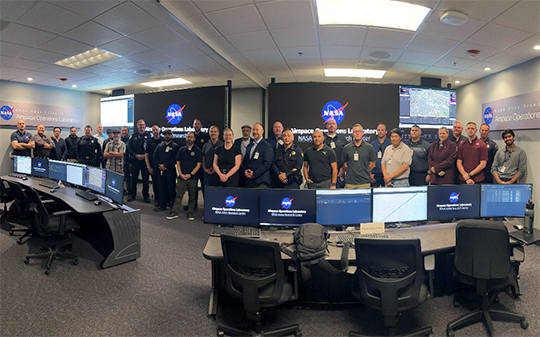|
|
 |

|
 |
 |
NASA's UAS Traffic Management (UTM) for Enabling Beyond Visual Line of Sight (BVLOS) Subproject Meets with Bay Area Public Small UAS Operators
On October 29th, 2024, NASA hosted a meeting with public small unmanned aerial system (sUAS) operators at NASA Ames Research Center. The purpose of the event was to engage with sUAS operators who currently use drones to perform public missions. The meeting included members from NASA Ames Research Center’s Aviation System Division and Human Systems Integration Division, the California Department of Transportation (Caltrans), and several local first responders from the Contra Costa, Alameda, San Mateo and Santa Clara counties.
Since public and commercial drone operations are both on the rise in low altitude airspace (from 0’ - 400’ above ground level), NASA emphasized that commercial operations should not be allowed to block public missions, and that priority access to the airspace should be granted when drones are deployed in emergency and life-saving situations. In addition, the Airspace Operations Laboratory supported an interactive demonstration in which visitors explored UAS traffic management concepts through simulated scenarios.
The UTM BVLOS subproject will continue to build connections with public sUAS operators across the country to ensure vital needs are well understood and fed into regulatory and standards organizations.

Researchers and officials from NASA, Caltrans, and local first responders from Contra Costa, Alameda, San Mateo and Santa Clara counties
Point of Contact: Gita Hodell, M.A. (ARC-TH), gita.s.hodell@nasa.gov, Human Systems Integration Division, NASA Ames Research Center |
|
|